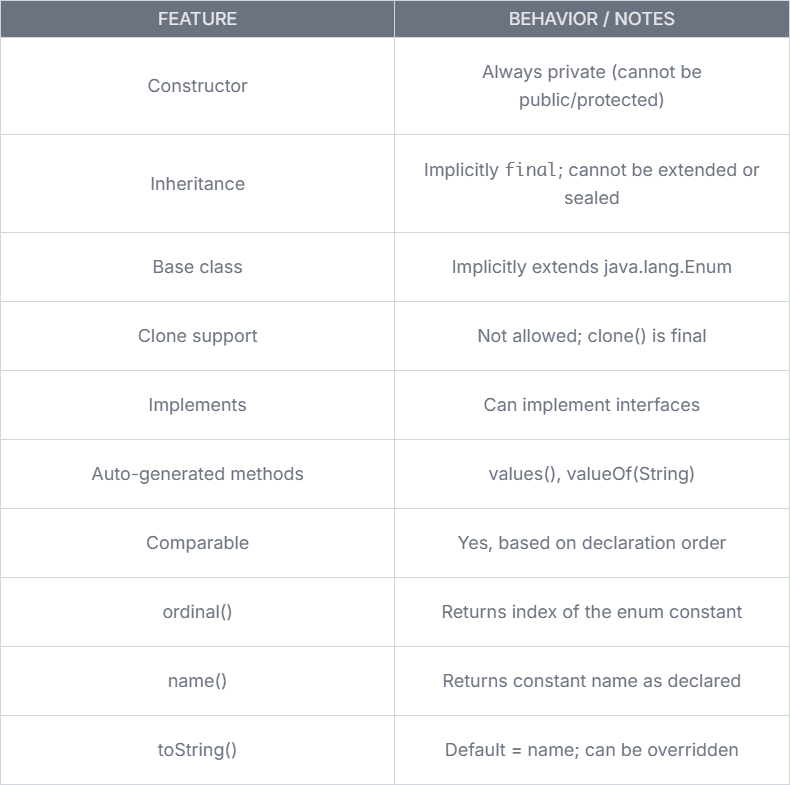·
If you're preparing for the Java 21 certification (1Z0-830), understanding how enum works under the hood is essential. This article summarizes key concepts you must know—backed by what’s actually tested in the exam.
Let’s break it down! 👇
🔍 Key enum Facts for the Exam
Here are the must-know points about enum types:
- 🔒 Enum constructors are always private You cannot declare them public or protected. If you don’t define any, the compiler adds a private no-arg constructor.
- 🚫 Enums are implicitly final You can't extend an enum, nor can you mark it as sealed.
- 🧬 Enums cannot extend classes All enums implicitly extend java.lang.Enum, and Java doesn't support multiple inheritance, so you can’t extend anything else. ✅ But yes, enums can implement interfaces!
- ❌ Enums can't be cloned You can’t override clone() because it's final in java.lang.Enum. This ensures enum constants are singleton-like.
- 🧪 Compiler generates utility methods Every enum automatically gets:
- 🎨 You can override toString() The default toString() returns the enum’s name—but you can customize it for better readability or localization.
🧠 Dive Deeper: java.lang.Enum Capabilities
- ⚖️ Implements Comparable You can use enums in sorted collections like TreeSet or TreeMap. The natural order is based on declaration order, not name.
- 🔢 ordinal() method Returns the index (starting at 0) of the enum constant in its declaration.
- 🏷️ name() method Returns the exact name of the enum constant as written in code.
📋 Summary Table

📋 Summary Table
🎯 Final Tip
Enums are simple on the surface, but the exam expects you to know their internal mechanics. Focus especially on constructor visibility, inheritance restrictions, and the auto-generated methods.
Good luck with your certification!
Go further with Java certification:
Java👇
Spring👇